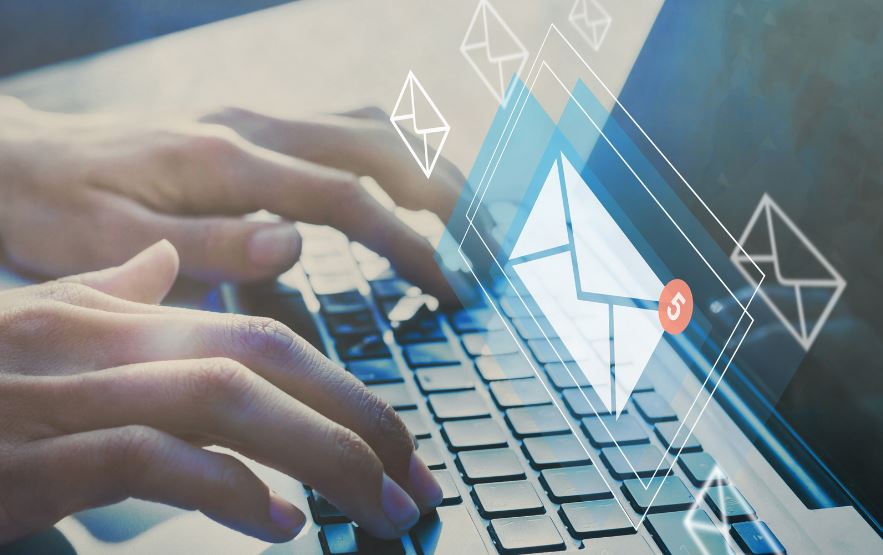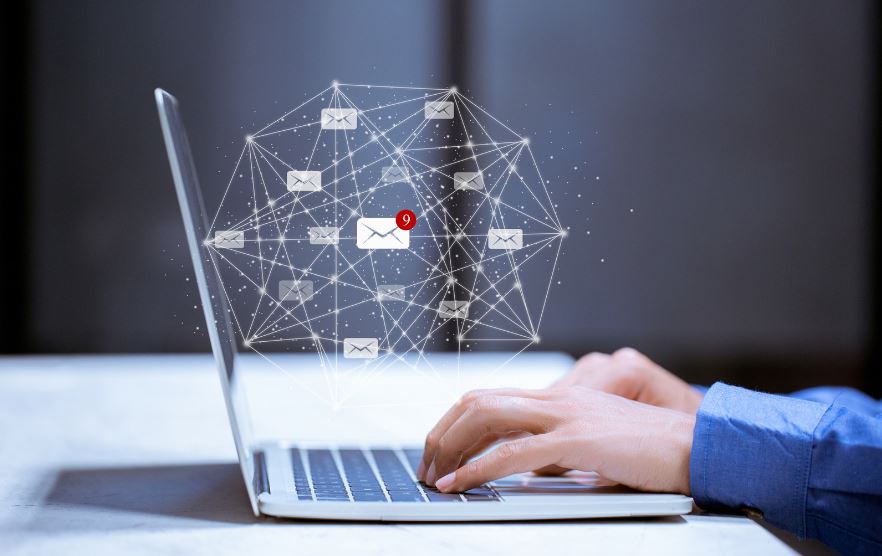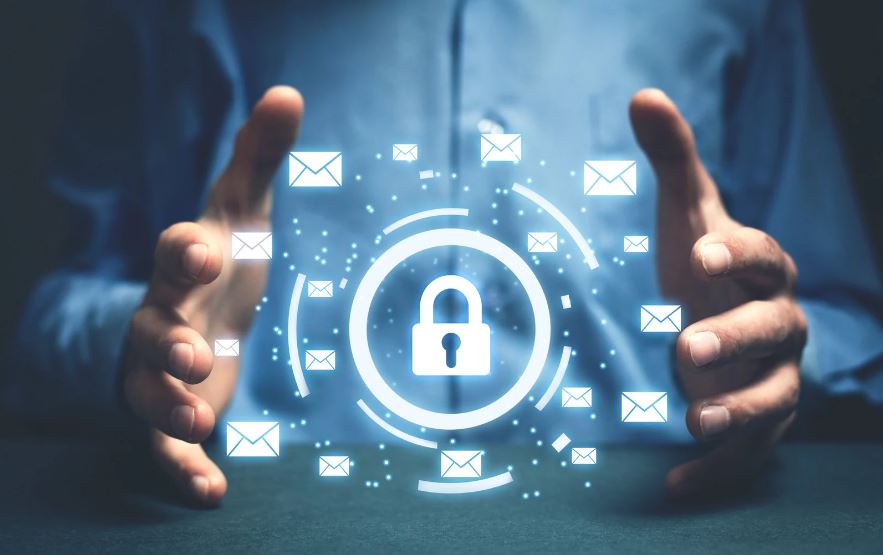In today's digital landscape, email security plays a critical role in protecting sensitive information and ensuring the smooth operation of businesses. However, there are several challenges that individuals and organizations face when it comes to securing their email communications.

Current Challenges in Email Security
Email security faces a multitude of challenges, primarily driven by the ever-evolving tactics of cybercriminals. Some of the key challenges include:
- Phishing Attacks: Phishing attacks continue to be a significant threat in the email security landscape. Cybercriminals use deceptive techniques to trick individuals into revealing sensitive information or downloading malicious attachments.
- Malware and Ransomware: Emails are often used as a delivery method for malware and ransomware. These malicious programs can cause significant damage, such as data breaches, financial loss, and operational disruptions.
- Email Spoofing: Email spoofing involves forging the email sender's identity, making it appear as if the email originates from a trusted source. This technique is often used in phishing attacks to deceive recipients into taking malicious actions.
- Insider Threats: Insider threats, whether intentional or unintentional, pose a significant risk to email security. Employees or individuals with authorized access may compromise email systems, leading to data breaches or unauthorized disclosure of sensitive information.
Importance of Email Security for SMEs
Email security is of paramount importance for small and medium-sized enterprises (SMEs) due to several factors:
- Confidentiality and Privacy: SMEs often handle sensitive customer data, financial information, and proprietary business data through email. Ensuring the confidentiality and privacy of this information is crucial to maintaining trust and compliance with data protection regulations.
- Financial Impact: Email security breaches can have severe financial consequences for SMEs. The costs associated with data recovery, legal liabilities, reputational damage, and potential loss of business can be detrimental to the growth and survival of SMEs.
- Business Continuity: Email is a critical communication tool for SMEs. Any disruption or compromise of email systems can result in significant operational downtime, impacting productivity and overall business continuity.
To address these challenges and protect sensitive information, SMEs need to stay informed about the evolving email security landscape and implement robust security measures that align with their unique requirements.
Evolution of Email Security
As technology has advanced, so too has the need for stronger email security measures. In this section, we will explore the evolution of email security, starting from traditional email security measures and moving on to advancements in email security technologies.
Traditional Email Security Measures
In the early days of email, the primary focus of security measures was on protecting the network infrastructure and preventing unauthorized access to email accounts. Some of the traditional email security measures that were commonly employed include:
- Password Protection: Requiring users to create strong passwords and regularly change them to prevent unauthorized access.
- Firewalls: Implementing firewalls to monitor and control network traffic, protecting against external threats.
- Antivirus Software: Installing antivirus software to scan email attachments and detect and remove malware.
While these measures provided a basic level of protection, they were not sufficient to combat the increasingly sophisticated and targeted cyber threats that emerged over time.
Advancements in Email Security Technologies
In response to the evolving threat landscape, advancements in email security technologies have been developed to provide stronger protection against various types of attacks. Some of the notable advancements include:
- Email Encryption: Encryption technologies have become more accessible, allowing for the secure transmission of sensitive information via email. Encryption ensures that the content of emails remains confidential and cannot be intercepted or accessed by unauthorized parties.
- Advanced Threat Protection: Advanced threat protection solutions utilize machine learning and artificial intelligence to analyze email content, attachments, and links in real-time. These technologies can detect and block sophisticated phishing attacks, malicious attachments, and suspicious URLs, minimizing the risk of successful cyberattacks.
- Multi-Factor Authentication: Multi-factor authentication adds an extra layer of security by requiring users to provide additional verification, such as a fingerprint scan or a one-time password, in addition to their login credentials. This helps prevent unauthorized access even if login credentials are compromised.
- Data Loss Prevention: Data loss prevention solutions monitor outbound email traffic to prevent the accidental or intentional leakage of sensitive information. These technologies identify and block email messages containing sensitive data, such as credit card numbers or social security numbers, preventing data breaches and compliance violations.
The advancements in email security technologies have significantly improved the ability to detect and mitigate threats, providing SMEs with stronger protection against email-based cyberattacks.
Understanding the evolution of email security helps SMEs stay informed about the latest technologies and trends. Implementing these advancements safeguards sensitive information, protects against cyber threats, and ensures compliance with data protection regulations.
The Future of Email Security
As technology rapidly evolves, so does the landscape of email security. In this section, we will explore the predictions and trends for the future of email security, as well as the emerging technologies that are shaping its development.
Predictions and Trends
The future of email security holds several key predictions and trends that are expected to shape the industry. These include:
- Increased focus on artificial intelligence (AI) and machine learning: AI and machine learning technologies are predicted to play a significant role in email security. These technologies can analyze large volumes of data to identify patterns and anomalies, helping to detect and prevent sophisticated email threats.
- Advanced threat detection and response: With the rise of sophisticated email attacks, there will be a greater emphasis on advanced threat detection and response mechanisms. This includes real-time monitoring, behavioral analysis, and predictive analytics to identify and mitigate emerging threats.
- Stronger encryption protocols: As cybercriminals become more adept at bypassing traditional encryption methods, the future of email security will see the adoption of stronger encryption protocols. This will ensure that sensitive information shared via email remains confidential and protected from unauthorized access.
- Integration with cloud-based security solutions: With the growing popularity of cloud-based services, email security solutions are expected to integrate more seamlessly with cloud platforms. This integration will provide added layers of protection, including secure email gateways and data loss prevention measures.
Emerging Technologies in Email Security
To stay ahead of evolving threats, several emerging technologies are being developed and implemented in the field of email security. These technologies include:
| Technology | Description |
| Behavioral Analysis | This technology analyzes user behavior patterns to identify deviations that could indicate a potential email security threat. It helps detect anomalies and protect against social engineering attacks. |
| Zero Trust Architecture | Zero Trust Architecture ensures that every access request is authenticated and verified before granting access to email systems. It minimizes the risk of unauthorized access and strengthens overall security. |
| Blockchain | Blockchain technology is being explored to enhance the security of email communication. By leveraging decentralized and immutable ledgers, it can provide increased transparency, integrity, and tamper-proof records of email interactions. |
| Biometric Authentication | Biometric authentication, such as fingerprint or facial recognition, is gaining prominence as an additional layer of email security. It provides a unique and secure method to verify the identity of email users. |
These emerging technologies, along with others in development, have the potential to revolutionize email security and protect businesses from evolving threats.
As the future of email security unfolds, it is essential for SMEs to stay informed about the latest trends and advancements. By embracing these technologies and implementing best practices, businesses can safeguard their email communications and protect sensitive information from falling into the wrong hands.
Benefits of Advanced Email Security
Implementing advanced email security measures can bring numerous benefits to SMEs. By leveraging cutting-edge technologies and practices, businesses can enhance threat detection, improve data protection, and ensure regulatory compliance.
Enhanced Threat Detection
Advanced email security solutions employ sophisticated algorithms and machine learning techniques to enhance threat detection capabilities. By analyzing email content, attachments, and sender behavior, these solutions can identify and block various types of email threats, including phishing attacks, malware, and suspicious links. This proactive approach helps to reduce the risk of successful email-based cyberattacks, safeguarding sensitive business information and maintaining the trust of customers and partners.
Improved Data Protection
Emails often contain confidential and sensitive data, making it crucial to protect this information from unauthorized access. Advanced email security solutions provide robust encryption mechanisms to secure email communications, ensuring that sensitive data remains confidential during transit. Additionally, these solutions can offer data loss prevention (DLP) features that help prevent accidental or intentional data leaks by monitoring outgoing emails for sensitive information and applying appropriate security measures.
To further illustrate the benefits of advanced email security, consider the following table:
| Benefits of Advanced Email Security |
| Enhanced threat detection |
| Improved data protection |
| Regulatory compliance |
Regulatory Compliance
Complying with industry regulations and data protection laws is essential for any business. Advanced email security solutions can assist SMEs in meeting regulatory requirements by implementing features such as email archiving, audit trails, and access controls. These capabilities not only ensure compliance with regulations but also provide businesses with the necessary tools to demonstrate their commitment to data privacy and security.
Embracing advanced email security measures allows SMEs to mitigate risks from email-based attacks, protect sensitive information, and meet regulatory obligations. Adopting these solutions as part of an overall cybersecurity strategy helps businesses stay ahead of evolving threats and safeguard valuable assets.

Implementing Future-Proof Email Security
To ensure the protection of sensitive data and guard against evolving cyber threats, it is crucial for SMEs to implement future-proof email security measures. By following best practices and taking steps to strengthen email security, businesses can significantly reduce the risk of email-related breaches and attacks.
Best Practices for SMEs
Implementing email security best practices can serve as the foundation for a robust and effective security strategy. Here are some key practices that SMEs should consider:
- Employee Education and Training: Conduct regular training sessions to educate employees about email security best practices, such as recognizing phishing attempts, avoiding suspicious attachments, and creating strong passwords.
- Multi-Factor Authentication (MFA): Enable MFA for email accounts to add an extra layer of security. This ensures that even if passwords are compromised, unauthorized access is prevented.
- Regular Software Updates: Keep email software, antivirus programs, and security patches up to date. Regular updates help address software vulnerabilities and protect against emerging threats.
- Email Encryption: Utilize email encryption technologies to secure sensitive information during transit. Encryption ensures that even if intercepted, the content of the email remains unreadable to unauthorized individuals.
- Spam and Phishing Filters: Deploy robust spam and phishing filters to prevent malicious emails from reaching employees' inboxes. These filters can identify and block suspicious emails, reducing the risk of successful phishing attacks.
Steps to Strengthen Email Security
In addition to best practices, there are specific steps SMEs can take to strengthen their email security posture. By implementing these measures, businesses can enhance their defense against email-based threats:
- Secure Email Gateways: Deploy secure email gateways that act as a first line of defense against email threats. These gateways perform real-time scanning, filtering out malicious content and stopping threats before they reach employees' inboxes.
- Email Authentication Protocols: Implement email authentication protocols such as SPF (Sender Policy Framework), DKIM (DomainKeys Identified Mail), and DMARC (Domain-based Message Authentication, Reporting, and Conformance). These protocols help verify the authenticity of incoming emails, reducing the risk of spoofing and phishing attacks.
- Email Archiving: Establish a robust email archiving system to store and retain email communications. Archiving ensures compliance with regulatory requirements and enables easy retrieval of emails for legal or auditing purposes.
- Regular Security Audits: Conduct regular security audits to identify vulnerabilities and weaknesses in the email infrastructure. These audits help businesses proactively address potential security gaps and strengthen their overall email security.
Following best practices and implementing recommended steps helps SMEs fortify their email security and protect valuable data from emerging threats. Staying up-to-date with the latest trends and technologies in email security ensures a safe and secure email environment.
Stay Ahead with LK Tech's Email Security Solutions
At LK Tech, we’re dedicated to safeguarding your communications with cutting-edge email security services in Cincinnati. Our solutions ensure your email systems are protected against emerging threats and vulnerabilities.
Contact us today to discover how our advanced security measures can keep your business safe and secure in the ever-evolving landscape of email security.



